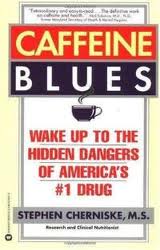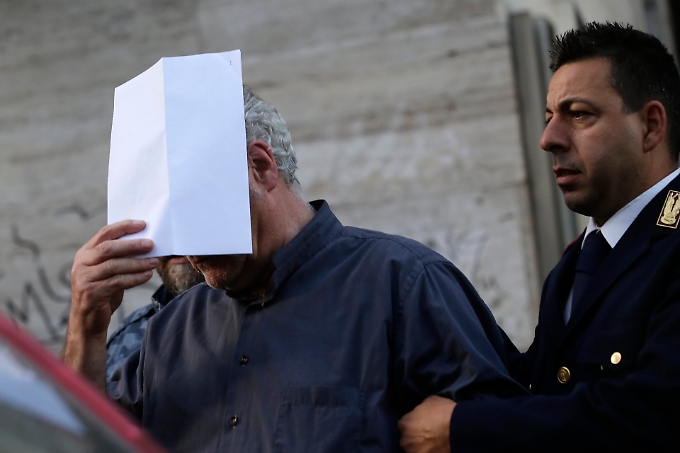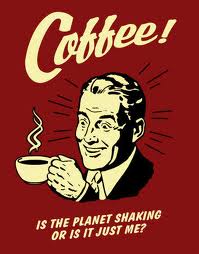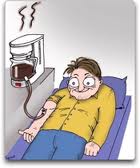Caffeine is Not Your Friend
July 19, 2015

(Reviewer is anonymous)
(Edited/abridged by henrymakow.com)
Okay, I know this article won't be popular. Most of us are so addicted to caffeine that we don't want to know about it. I am writing this because when "Caffeine Blues" came out I just knew I had to read it.
Several years ago I realized that coffee was much worse than we had been told, because I noticed that I got an arthritic pain in my wrist within ten to twenty minutes of a cappuccino!
This book didn't just tell me how bad coffee was - it told me how GOOD I would feel once I was totally caffeine free for two months.For example, I no longer have the drained feeling that I sometimes used to get in the mornings.

Written by Stephen Cherniske, a Clinical Nutritionist, "Caffeine Blues" is incredibly easy to read, and convincing. I realized that caffeine does NOT give us energy. In fact, it is a major CAUSE of LACK of energy.
As Cherniske waded through the tons of information on caffeine, he began to see that consciously or unconsciously nearly every researcher starts from the assumption that caffeine is okay. Why? Probably because they themselves depend on caffeine.
Caffeine is in coffee, black tea, green tea, oolong tea (wu-yi tea), 'decaffeinated' coffee and tea, chocolate, colas, chuppa-chups, many sodas, some drugs, most 'energy' drinks and guarana.
A 6 oz cup of:
- Percolated coffee has about 120 mg of caffeine
- Black tea has about 70 mg of caffeine
- Green tea about 35 mg of caffeine
- Leading colas 45 mg of caffeine
- Mountain dew 54 mg of caffeine
- Brewed decaf has 5 mg of caffeine
- Milk chocolate has 6 mg per ounce
- Baking chocolate has 35 mg per ounce.
Caffeine is produced by more than eighty species of plants. The reason may well be survival. As it turns out, caffeine is used by plants as a pesticide.

Caffeine is considered harmless simply because it is so widely used. Dr William Dement in his book "The Promise of Sleep" said that if caffeine was introduced today, it would not be allowed.
CAFFEINE LOBBY
There is a brochure available in hospitals and other medical related areas: "What you should know about caffeine" published by the International Food Information Council (IFIC) in Washington DC. After many phone calls Cherniske finally got a list of 'supporters' of the IFIC. It included Pepsi, Coca-Cola, M&M, Nutrasweet, Nestle and Hershey - all of whom have caffeine in their drinks and foods.
'Partners' of the IFIC included groups such as the National Association of Pediatric Nurses and the Children's Advertising Review Unit of the Council of Better Business Bureau Inc. This brochure says that "Caffeine is normally excreted within several hours after consumption". In fact, only 1% is excreted. The remaining 99% has to be detoxified by the liver. It can take up to 12 hours to detoxify a single cup of coffee.
Many studies regarding coffee and hypertension were flawed, because the test subjects came off coffee for only one or two weeks. It takes many more weeks than this for stress hormone levels of the body to return to normal.
The 'half-life' of a drug is the time it takes the body to remove one half of the dose. Caffeine is a drug. The half-life of a single dose of caffeine ranges from three to TWELVE hours.
CAFFEINE = STRESS, NOT ENERGY
Caffeine puts your body into stress. A single 250 milligram dose of caffeine (the equivalent of about 2.5 six ounce cups of coffee) has been shown to increase levels of the stress hormone epinephrine (adrenaline) by over 200%.
Caffeine triggers a classic fight-or-flight reaction designed for events that happened only occasionally (such as a lion chasing you). Now, we put our body in fight-or-flight mode every day with caffeine!!! As a result, sugar and fat get dumped unused in the bloodstream. The sugar creates more stress. The fat clogs the arteries. The digestive system slows or shuts down.
Not only is caffeine addictive, it also encourages addictions to substances like nicotine.

Caffeine does not give you energy. It stimulates your nervous system and adrenals. That's not energy, that's stress. The 'energy' that you think you get from caffeine is really just a loan from the adrenals and liver, and the interest you have to pay is very high.
Stress is a major factor in disorders such as anxiety, insomnia, depression, ulcers, rheumatoid arthritis, headache, hypoglycemia, asthma, herpes, hypertension and heart disease. And yet hospitals provide coffee and tea, which put your body into stress!!!
Caffeine consumption leads to DHEA deficiency .DHEA is our vitality hormone. Decreased levels of DHEA is a cause of aging. Caffeine is an AGING DRUG!
SIDE EFFECTS
Caffeine is implicated in ulcers and irritable bowel syndrome: GABA is produced in the intestinal tract, where it calms anxiety and stress. Caffeine disrupts the normal metabolism of GABA.
Caffeine disrupts sleep. Deep sleep is CRITICAL to good health. When there's caffeine in your bloodstream, you are unlikely to experience any deep sleep at all!
Caffeine AT ANY TIME of the day can cause sleep problems, especially if you are under stress.
Malnutrition is one of the most well-defined effects of habitual caffeine intake.
A single cup of coffee can reduce iron absorption from a meal by as much as 75%.
People do not develop a tolerance to the anxiety-producing effects of caffeine. Rather, people simply become accustomed to the feelings of stress, irritability and aggressiveness produced by the drug.
Caffeine contributes to depression in well-defined ways. This is particularly due to the withdrawal effect, which can cause headache, depression and fatigue, even in light users (p. 111).
Cherniske reported that 90% of people who came to him who suffered from depression and gave up caffeine completely for 2 months reported that their depression went away!
Students the world over use caffeine not only to stay awake, but also they believe the drug will improve their performance on exams. Solid research, however, illustrates that as little as 100 milligrams of caffeine (one cup of coffee, two cups of cola) can cause a significant DECREASE in recall and reasoning.
Moderate coffee drinkers with high cholesterol had more than seven times the risk of heart attack, while heavy coffee drinkers had eighteen times the risk of non-coffee drinkers!
Caffeine depletes your supplies of thiamin and other B vitamins, calcium, magnesium, potassium, iron and zinc. Caffeine increases calcium loss and risk of osteoporosis.
Take the Challenge! Most people have no idea what life would be like without the background of caffeine and stress hormones coursing through their veins.
--
Related - (From Greg) I wanted to add this information for your readers to take a look at in regards to what is in a lot of coffee that is roasted. There is new research on the bad effects on the lungs from a chemical called Diacetyl. Please post the following website links about this chemical.
http://www.cdc.gov/mmwr/preview/mmwrhtml/mm6216a3.htm
and the original article that I read on this chemical:
http://www.statesmanjournal.com/story/news/2015/07/18/chemical-cigs-coffee-roasting-health-risk/30334971/
-------------
Dr. Sears - Coffee Destroys Your Brain
Unrelated - World's Most Expensive Coffee made from Ferret Droppings
In Defence of Coffee by James:
As a faithful follower of your blog/articles, I was surprised to see the
article favorably reviewing Stephen Cherniske's book "Caffeine Blues".
Even with your caveat "may not affect you negatively but I am posting
this review in case it does", it's far too biased against coffee.
Particularly since the book was published in 1998, some 14 years ago and
prior to about 50 of the studies currently being cited by numerous
alternative and mainstream health advocates. Stephen Cherniske is
probably not a crackpot, but he didn't have this information available
when he wrote the book.
Everyone of us is of course biochemically unique and I certainly don't
subscribe to the "if it's good for me it's good for you" school of
nutrition or medicine. It is hard to ignore the numerous studies
indicating health benefits from coffee. You may be familiar with Dr
Mercola a MD who practices alternative medicine has been strongly
against coffee for over a decade, but due to mounting evidence has
changed his tune. He has one of the best articles summarizing the
current state of research.
http://articles.mercola.com/
Additionally you will want to check out Green Med Info (they are kind of
like a Pub Med database for natural medicine and nutrition) they
presently have 58 studies showing positive health benefits of coffee.
The Life Extension Foundation also has an article summarizing many of the studies showing health benefits of coffee. http://www.lef.org/magazine/
And lets not forget Wikipedia. They have a page highlighting both the good & bad effects of drinking coffee.
http://en.wikipedia.org/wiki/
With the exception of Wikipedia none of these sources can be considered
mainstream media or in the pockets of the big pharma or agri-business
(i.e. part of the NWO conspiracy) yet they are all convinced by the
numerous studies showing health benefits to drinking coffee.
This study is a little weak, but still suggestive:
http://www.sciencenews.org/
Note that none of these studies are dealing with cream & sugar, flavorings, etc in the coffee.
In my opinion that is where much of the harm from "coffee" comes from.
Summarizing the health benefits of coffee:
* Protective effect against type 2 diabetes
* May significantly cut your risk of Parkinson's disease
* Helps protect you from Alzheimer's disease
* Lower risk of lethal prostate cancer.
* Coffee drinkers are less likely to suffer symptomatic gallstone disease
Liver Cancer, less severe liver fibrosis, lower levels of fat in your liver, and lower rates of hepatitis-C disease progression.
* May be associated with decreased risk of kidney cancer
* Coffee consumption may lower colon cancer risk among women
* Moderate coffee drinking reduces your chances of being hospitalized for heart rhythm problems.
* 25 percent lower risk of stroke than women who drank coffee.
P.S. I'm not a coffee addict, and in fact I had at one time (back in the
80's) quit it entirely for several years, and I typically have 1 cup a
day.
I wanted to add this information for your readers to take a look at in regards to what is in a lot of coffee that is roasted.







Alex Gottwald said (July 20, 2015):
I just read your article on coffee. Here's my two cents, if you like:
For years I was struggling with coffee addiction, I at times replaced by black or green tea addiction. Coffee made me nervous and after that little kick very tired. It often also gave me headaches. Black tea had a similar effect on me, green tea even caused migraine headaches... so I felt quite desperate about what to do...
Some years ago I then came across Guaraná back in 2006 in Germany.
https://en.wikipedia.org/wiki/Guarana
Guaraná is a vine from the Amazonian rain forest I now happen to live close by... it does contain caffeine, but it has none of those harmful effects, I described concerning the beverages mentioned above. It makes me awake slowly but surely and also clears the head in the morning from all the rests of sleepy mists and clouds. I usually put about one teaspoon in my mouth after rising in the morning. I add some black pepper, to increase the effect and leave it in my mouth until it all got soaked by saliva... by then the clearing effect on the third eye has been happening and I swallow the Guaraná...
It keeps me awake a lot longer than coffee/tea ever did... no headaches attached. No nervousness. No stress. Guaraná also has got several additional health effects btw. like e.g. a reduction in appetite. For this effect some people use it for weight loss. As this is not an issue for me, I just find it practical when I want to write all morning without needing to have breakfast.
http://www.webmd.com/vitamins-and-supplements/lifestyle-guide-11/supplement-guide-guarana
The most useful place for using coffee from my perspective is an enema. Leaving it inside for at least 12 minutes has a nice cleansing effect on your liver.
http://www.drlwilson.com/articles/COFFEE%20ENEMA.HTM
http://alexandergottwald.com/en